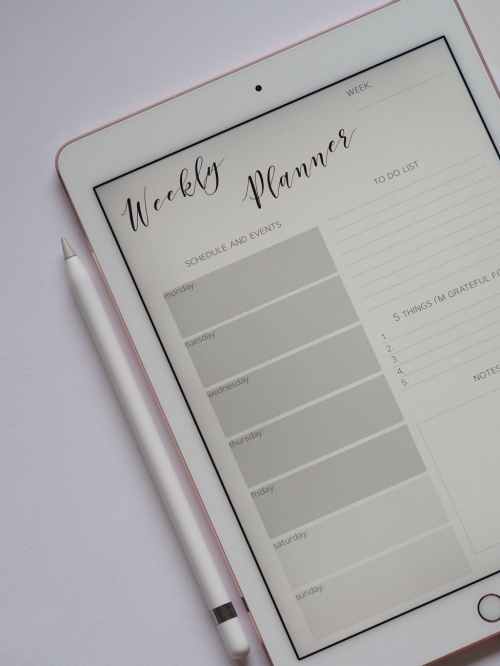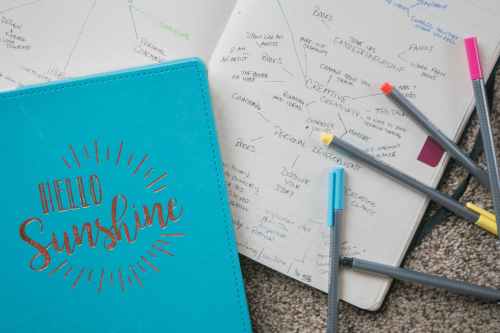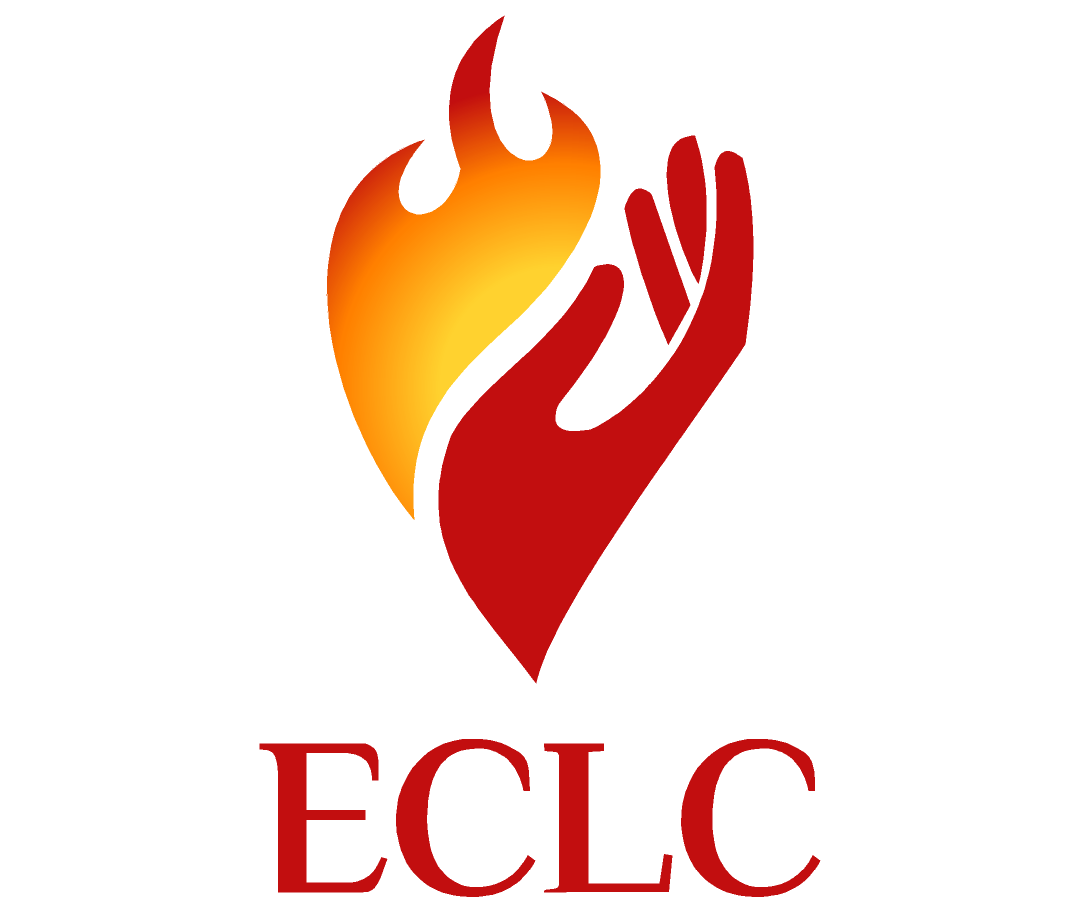Not everyone is a fan of setting goals, developing plans and setting up systems to support achievement of set targets, but I am. I believe in one way or another we all have our own way of developing and using something that is a guide for our life, our year, month, week and day. Over the years several coachees have approached me to help them with guidance on how best to structure their lives, aspirations and daily lives. Many yearn to practice good personal management, use their time more efficiently in line with work and personal wellness needs and others just want to have a plan that will give their many hours on earth purpose.
We all plan differently and how we review our plans is just as different. In terms of planning, for some it’s knowing their passion, what they love to do and using this as a lens for daily decisions and actions. For others, it’s the bigger framing of living a meaningful life aligned to their life purpose, the reason they exist or were born for. Another category falls in the vision space, where they define what they want to achieve in 10+ years and leave as a footprint in this world, or as their legacy. For others its life values, which are deep seated beliefs that inform the decisions and actions they take. Others breakdown the 10-year vision down to be followed by a 5-year life plan or strategy covering 5 years.
The more popular approach to planning is the mad rush of newness we experience in January that triggers many to set resolutions and develop a 1-year plan and goals. My preference is a recurring and overlapping cycle of 18 months plans, in which my 1-year plan would fall under. This is a tactical or operational level of planning, which can still be further broken down to quarterly projections, monthly plans, weekly targets and daily task lists. Lastly, people like myself do all the above, which is a lot and best practiced as a way of life so it becomes embedded in who you are and how you manage your life. In this blog I will offer guidance for detailed plan review that is useful for any of these approaches, but more for those who use a structured goal-setting approach and cycle of review and re-planning.
WAYS TO REGULARLY REVIEW YOUR PLAN
Whatever your approach to planning, it is advisable to have a process of review that gives you feedback on how you are doing. As with the different ways of planning, there are also various ways of reviewing plans.
- Self-observation, reflection and self-reporting is one way of tracking your progress and taking note of lessons and achievements to celebrate. This can be achieved by doing regular reflections, noting lessons and pausing at set moments e.g. monthly to adjust course and celebrate wins.
- Journal writing, this is one method and tool of regular reflection and capturing of your process of change, progress towards set goals and recording how your life is unfolding in general.
- Feedback from Others: getting and using feedback from other people is another approach. This could be from a close circle of people who know you well, or going beyond this group to ask other voices you would not ordinarily hear from. We all have blind spots, so this approach is helpful as validated by the work of Joseph Luft and Harrington Ingham who developed the very useful Johari Window feedback tool. In this latter approach, it is advisable to be proactive in informing people what you are working on before hand and ask for feedback at intermittent points e.g. weekly, monthly or in other time frames of your choice.
- Accountability Partners or Group: this is a person or group of people you specifically approach and request that you check in with them on a regular basis in terms of the goals or change areas you have set for yourself. This has to be someone or people whose opinion and time you respect. They should also alternately be available to you and be able to give your feedback at regular intervals.
- Other sources of feedback: similar to the bullet above, you also get feedback from teams you work with, your line manager or team leader, from clients or people you serve or interact with. This can be proactively sought or found in reports and other feedback mechanisms that are part of work, projects and business services or products provided e.g. testimonials or referrals.
- Technology is also a great support in terms of capturing data for any goals were this is relevant. The wearable devices for physical exercise, apps on our phones, programs embedded in online platforms that we use can give you data on a daily basis and do analytics for you to use as part of your review. E.g. all social media platforms have analytics, so does Microsoft Teams if you are using this software package for e-mail, Outlook meetings scheduling etc. Furthermore, all phones have step counters and many free apps track a lot of what would fall under wellness goals – finances, health, screen time for digital wellness, self-care, etc.

PLAN REVIEW GUIDE – SELF-COACHING RESOURCE
To benefit the most from this process, when you develop your goals, also think about how you will review the plan. This will help you “gather data” as you go along and not do everything at one go as this can be overwhelming. To get you started, list your goals and gather all the data or information you can find from the ways of review outlined in the above section. Set aside quiet time to focus on this and use the following questions to review your progress to date and define what’s next.
- ACHIEVEMENTS: what have you achieved to date – for each goal?
- WORKING: what’s working for you – for the actions you set for each goal?
- NOT WORKING: what’s not working for you – for the actions you set for each goal?
- LEARNING: (personal development plan) how have you developed yourself and note as lessons?
- ACCOUNTABILITY: what’s your accountability mechanism and how has it been helping you and your goals?
- HABITS: what’s your review of the habits you had to develop or strengthen for your goals?
- SYSTEMS: what’s your review of the systems did you use or set up to support your goals? What’s your review of this?
- REWARDS: (motivation) how did you stay motivated and reward yourself?
- LESSONS: what are your key lessons
- PLAN GOING FORWARD: what do you plan to do in the next period of action for your goals e.g. 1 month, 3 months, 6 month or 1 year?
The depth of how you want to review is up to you. What is important is that you are honest in your reflection and you also triangulate how you have assessed yourself with what others are saying, as well as data from any technology sources you have been using. Wherever you can, add some evidence to your review notes. Once you are done with review, the next step stemming from number 10 above is planning again. I have developed another Planning Guide with 10 questions to help you utilize lessons from the review to support your next cycle of planning.

PLANNING GUIDE – SELF-COACHING RESOURCE
Here is another 10 helpful questions to answer as you plan for the next period of action for your goals, in line with the 10 areas above.
Based on the lessons from the period of action that you have just reviewed:
- CONTINUE: What should you continue doing or do differently?
- STOP: What should you stop doing?
- START: What should you start doing (new)?
- LEARNING: (personal development plan) What’s your learning commitment for your next period of action to support your goals?
- ACCOUNTABILITY: How will you hold yourself accountable?
- HABITS: What habits do you need to develop or strengthen to support your goals?
- SYSTEMS: What systems do you need to set up to help you achieve your goals e.g. morning and evening routine?
- REWARDS: (motivation) How do you plan to stay motivated and reward yourself
- LESSONS: How will you capture lessons on an ongoing basis?
- PLAN IMPLEMENTATION: How do you plan to work on your goals in small, incremental steps e.g. using a weekly plan and using a daily tasks list?
Just as with the review process, when you plan for your next period of action towards your goals think about how you will do the review and gather data or information progressively. Think about the tools and methods that will support this process. It may be difficult if you are starting, but it gets easier as this become an approach to how you organize and manage your life.
CONCLUSION:
As you can see, planning, review, noting lessons, adjusting and planning again is a cycle that you can develop for yourself for better personal management and achievement of whatever is important in your life. We are all different, so what works for Coach Ennie or the next person may work for you, so define and use what works for you while keeping an open mind to learn and change. Reach out to me if you need help with this area of personal leadership and management.

Ennie Chipembere, Career Coach and Learning Expert
E-mail: ennielifecoach@servicesgalore.co.za
LinkedIn Profile: https://www.linkedin.com/in/ennie-chipembere-chikwema/
Facebook Page: https://www.facebook.com/EnnieCareerCoach/
Twitter: @EnnieChipembere

